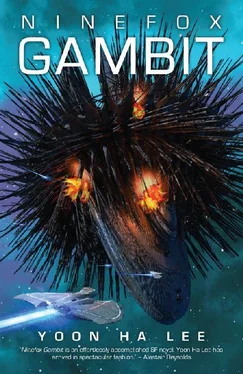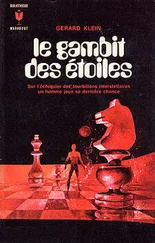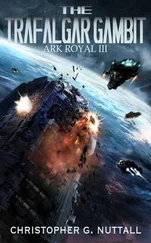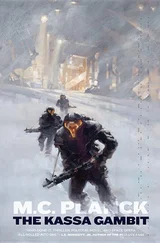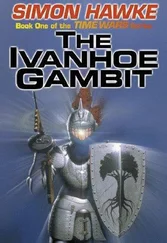Cheris wasn’t just good at math. She was possibly good enough to compete with Kujen, although the fact that she hadn’t gone into research mathematics made it hard to tell for certain. Just as importantly, she was good enough to make up for Jedao’s – the weapon’s – deficiencies in that area.
“Where on earth did you find her? No, don’t answer that. It’s charming to think that there’s a Kel who might understand some higher math. Too bad I can’t yell at the Kel recruiters for not sending her my way.”
“Be fair,” Mikodez said. “They tried to redirect her to the Nirai, but she insisted that she wanted to be a Kel. She was attractive enough as an officer candidate that they relented.”
Something flickered at the corner of his eye. Kujen frowned and said, “Take a look at the composite indices for the Fortress readings, Mikodez. Whatever they’re doing in there hit all the wards at once. We just had to luck out with intelligent heretics instead of the usual stupid kind, so we need to settle on a candidate to deal with them. That’s hard to do when you’re dicking around avoiding me.”
“I wanted just the right one,” Mikodez said.
“She looks pretty good,” Kujen conceded, “but that commander with the beautiful hands also looked pretty good. And don’t roll your eyes at me, I’m talking about his qualifications, not his aesthetics. Honestly, Mikodez, don’t you ever take anything seriously? The commander at least has experience in space warfare, which your infantry captain doesn’t.”
“I take the situation at the Fortress very seriously,” Mikodez said. “Besides, the fact that Cheris specialized in mathematics might enable her to better deal with calendrical warfare.” Still, he smiled lazily at Kujen because it was best not to be seen to care too much.
The Fortress of Scattered Needles was located at a nexus point in a stretch of empty space and was nearest the Footbreak system. The Rahal had already stationed a lensmoth there, but all it could do was staunch the bleeding as long as the Fortress itself was afflicted.
The Fortress was also divided into six wards, one for each faction, although the boundaries weren’t as strictly enforced as they had been in the old days. There had once been a seventh ward for the seventh faction, the Liozh. The Fortress’s interior had been demolished and rebuilt to remove the seventh ward, at staggering expense, after the Liozh heresy was put down.
Whoever had infected the Fortress with rot had taken down all six wards at the same time. The degree of coordination implied would have been enough of a problem, but Mikodez had reason to believe that the particular form the rot had taken was the result of heretics taking advantage of an experiment being run by Hexarch Rahal Iruja and the false hexarch Nirai Faian. Faian was supposed to run the Nirai in public so Kujen could amuse himself with whatever research caught his fancy, but Iruja had suborned her almost from the beginning. A nexus fortress made an ideal proving ground for their work because it represented the hexarchate in miniature. What Mikodez didn’t understand was why they hadn’t used one of the smaller fortresses instead.
As to why Iruja and Faian were experimenting with the calendar, that was obvious. All the hexarchs knew, and even Kujen, who hadn’t been told, could guess. They wanted a better form of immortality. There was a comprehensive body of work suggesting that you couldn’t do better than Kujen had under the existing calendar. Mikodez wouldn’t have minded asking Kujen about it outright, but he was supposed to be keeping an eye on Kujen for the other hexarchs. Iruja would have disapproved of him tipping their hand, even about something so easy to figure out.
Kujen, for his part, tolerated the other hexarchs because his immortality relied on the high calendar in its present form, and the high calendar didn’t just include the numbers and measures of time, but the associated social system. In this case, that meant the six factions. If Kujen came up with a viable alternative that eliminated the competition, he would become a real threat to the system. The fact that he hadn’t already done away with everyone else strongly suggested that it was unlikely that such an alternative existed.
At some point, Rahal Iruja was going to ask Mikodez to remove Kujen for real. Mikodez already had files detailing possible ways to do it, which he updated twice a month (more often when he got bored), although he wasn’t going to unless it became necessary. True, Kujen’s taste in hobbies made him an annoying transaction cost, but he was good at his job and he represented a certain amount of stability. Of course, Mikodez had plans for how to deal with the inevitable transition after Kujen’s death, just in case.
Kujen had sent Mikodez his projections of possible heretical calendars. “I’ve sorted them by likelihood,” Kujen said. “That first one is bad news, especially if they’re fixated on seven as their central integer. And here I thought nobody paid attention to the past anymore.” He was one of two people who still remembered what life had been like under seven factions, not six.
“You’ve been hanging out with too many Kel,” Mikodez said, although it wasn’t entirely true that the Kel disdained history. Nevertheless, the prospect of a Liozh revival – of a time when the hexarchate was a heptarchate – did concern him. The Liozh had been the philosophers and ethicists of the heptarchate, and some evidence suggested that they had been destroyed when they attempted to do away with the remembrances, which Kujen was fond of. Mikodez didn’t like the thought of Kujen becoming more personally invested in the matter, given his proclivities. Besides, it was hard to tell without more data, but if the Liozh had failed with their heresy the first time around, why would any sane heretic pick them to emulate?
“You’re stooping to making Kel jokes?” Kujen said. The corner of his mouth lifted.
“Someone has to,” Mikodez said. The Kel hexarch was known to make them herself.
Kujen fiddled with something off-screen. “Anyway, all those calendars are compatible with the Fortress’s shields. I have advised Kel Command that they might as well just say how to take the shields out since it’s not like it’ll stay a secret, but they are proving resistant.”
“Never give information away if you don’t have to,” Mikodez said. If the shields went down, the Fortress was dangerously vulnerable.
“Yes, but your own side?”
“Own side” was putting it a bit strongly. “They won’t like it if you say anything about it,” Mikodez said, as if Kujen needed the warning. Kujen shouldn’t have a say in a military decision anyway, except no one else was capable of overseeing the particular weapon Kel Command wanted to deploy.
“I can keep my mouth shut,” Kujen said irritably. “You’ve made no secret of the fact that you have the usual Shuos prejudices, but I suppose you have your reasons for authorizing the mission.”
It had been a sore point with Shuos leaders for almost four centuries that the Kel had snatched away their last general, even if the Shuos still had to approve Kel operations involving his use. “Anyway,” Mikodez said after a pause to see if Kujen was going to add anything, “you haven’t told me if you think the candidate’s acceptable.”
“You really like the Sheathed Wings, don’t you? Aren’t you afraid she’s going to put Jedao to sleep?”
It was entirely in character for Kujen to think psychological stability was dull. “I’m sure the general will bring some excitement into her life,” Mikodez said.
“She’s wasted on him,” Kujen said. “I still think that commander would be a better fit. And I could get more use out of the Sheathed Wings if Kel Command doesn’t want her anymore.”
Читать дальше
